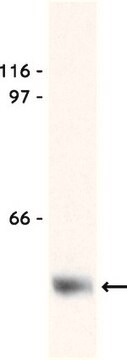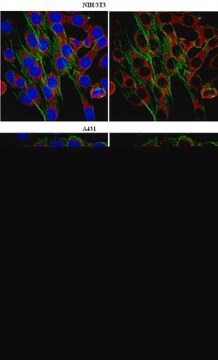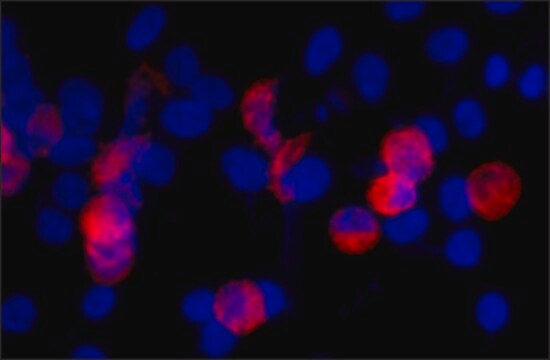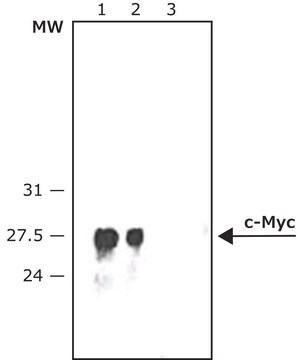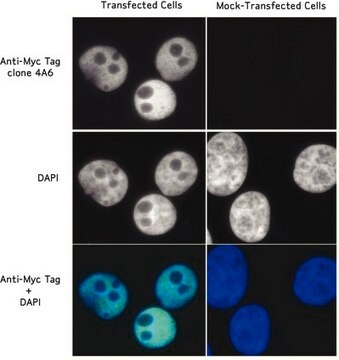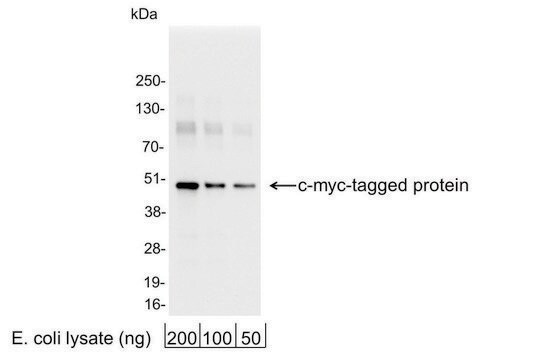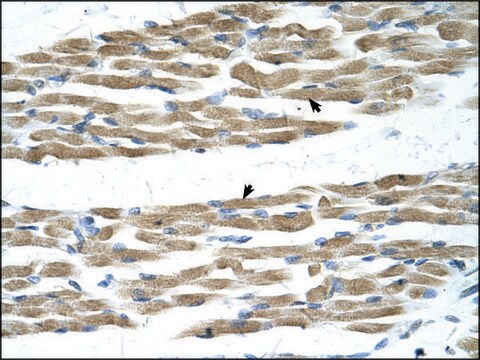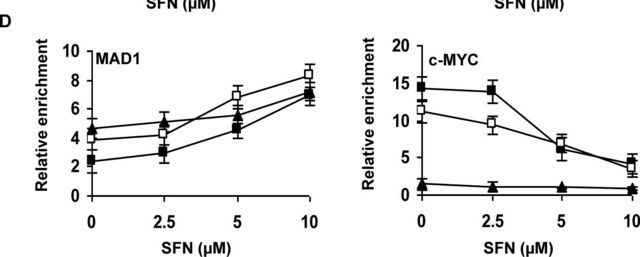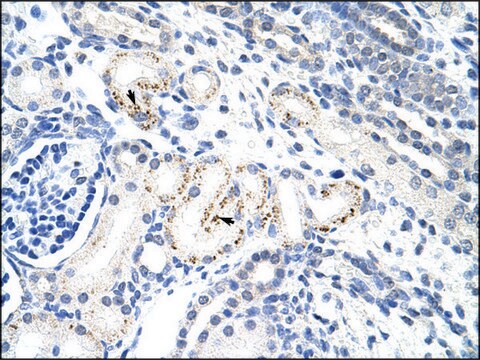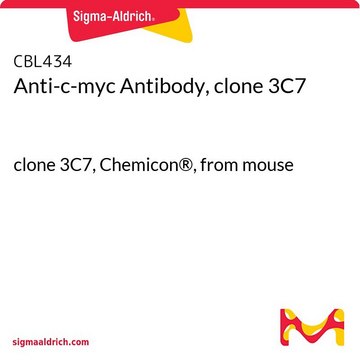C3956
Anti-c-Myc antibody produced in rabbit
~0.5 mg/mL, affinity isolated antibody, buffered aqueous solution
Sinónimos:
Myc Tag Polyclonal Antibody, c-Myc Antibody
About This Item
Productos recomendados
biological source
rabbit
Quality Level
conjugate
unconjugated
antibody form
affinity isolated antibody
antibody product type
primary antibodies
clone
polyclonal
form
buffered aqueous solution
species reactivity
human
concentration
~0.5 mg/mL
technique(s)
immunocytochemistry: 5-10 μg/mL
immunoprecipitation (IP): 1-2 μg using immunoprecipitates a c-Myc fusion protein from transfected mammalian cell lysates or bacterial extracts
indirect immunofluorescence: 5-10 μg/mL using detects c-Myc fusion proteins in methanol-acetone fixed transiently transfected cells
microarray: suitable
western blot: 0.5-1 μg/mL using detects c-Myc fusion proteins in cell extracts from transfected cultures as well as bacterial lysates.
UniProt accession no.
storage temp.
−20°C
Gene Information
human ... MYC(4609)
¿Está buscando productos similares? Visita Guía de comparación de productos
General description
Specificity
Immunogen
Application
.
Biochem/physiol Actions
Physical form
¿No encuentra el producto adecuado?
Pruebe nuestro Herramienta de selección de productos.
Optional
Storage Class
10 - Combustible liquids
wgk_germany
WGK 1
flash_point_f
Not applicable
flash_point_c
Not applicable
ppe
Eyeshields, Gloves, multi-purpose combination respirator cartridge (US)
Certificados de análisis (COA)
Busque Certificados de análisis (COA) introduciendo el número de lote del producto. Los números de lote se encuentran en la etiqueta del producto después de las palabras «Lot» o «Batch»
¿Ya tiene este producto?
Encuentre la documentación para los productos que ha comprado recientemente en la Biblioteca de documentos.
Los clientes también vieron
Nuestro equipo de científicos tiene experiencia en todas las áreas de investigación: Ciencias de la vida, Ciencia de los materiales, Síntesis química, Cromatografía, Analítica y muchas otras.
Póngase en contacto con el Servicio técnico